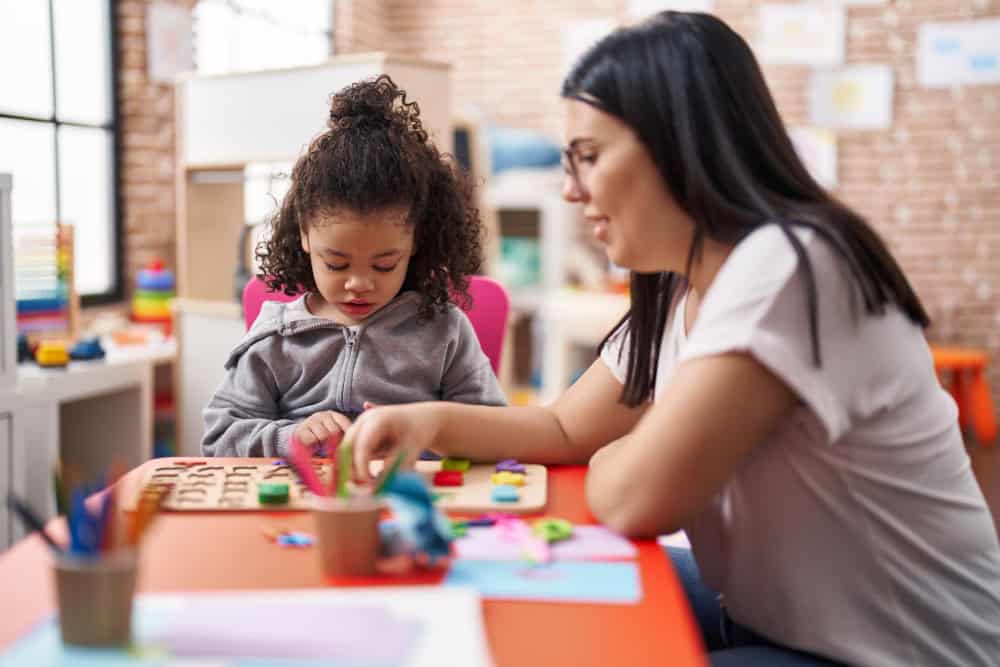
Every parent dreams of raising a child who grows up to be a successful and happy individual. We hope they can navigate through the ebbs and flows of life and come out on top. But the thing is, the foundation of a mentally strong adult who knows how to deal with life is laid in their early years. Children aren’t born knowing how to handle failure, fear, and frustration; they learn these things during childhood. Hence, as parents, it becomes our duty to equip our children with the tools they need to prosper in life. Raising mentally strong kids isn’t about shielding them from problems; instead, it’s about teaching them to understand and face them.
In this article, we’ll discuss everyday parenting tips to help your kids deal with emotions early on. It lays the groundwork not only for raising mentally strong kids but also for confidence, empathy, and resilience, which will help them face life’s problems.
Mental Strength Begins in Childhood
We often associate the term ‘strength’ with physical sturdiness, like how much a person can carry or how they react to physical discomfort. Meanwhile, real strength begins from within. How a person is able to deal with problems, how they are able to keep a hold of their emotions, and how they bounce back when things don’t go their way.

Early childhood experiences of love, safety, and regular support lay the groundwork for mental strength. For ages, it was believed that the key to raising resilient kids is to give them ‘tough love’ and give them an environment that mimics the challenges of life. However, modern child psychologists emphasize giving them emotional safety and instilling confidence. Children who feel safe and understood grow to have a profound sense of confidence and self-worth, which forms the foundation for emotional regulation.
Raising Mentally Strong Kids
1- Involve Them in Decision Making
Children are often left out of decision-making processes because adults believe they know what is best for them. The final say or choice should belong to the parent. However, kids who never get to make their own choices grow up to become indecisive adults who rely on others’ opinions to figure out what they should do. Finding ways to include your child in any decision-making process is a fantastic way to make them feel valued and acknowledged at home.
It doesn’t have to be a huge, life-altering decision; you can start with small things like what they feel like having for dinner, which shoes they want to wear when going out, or letting them pick a place for the next family outing. Letting them pick these things helps them figure out what they want. The gets a chance to speak up and feel their voice holds importance, which helps build confidence and decisiveness.
2-Teach Them To Label Their Emotions
Teaching children how to manage their emotions is one of the most important life skills you can teach them. This is known as emotion regulation, and it all begins with identifying the emotions. We can only express and control our emotions if we can recognize them and understand how they influence our ideas and conduct. Since children are not as familiar with their emotions as adults are, this becomes more crucial for them.
Through language and emotional check-ins, children acquire cues to identify feelings and their intensity, allowing them to explain their emotions rather than react impulsively. Labels such as “I am angry” or “I am sad” can help to reduce emotional intensity. Studies show that teaching kids to identify and categorize their feelings increases self-awareness, which is essential for mental resilience and handling emotions.
3-Positive Reinforcement

Positive reinforcement is an approach of rewarding a youngster immediately after they demonstrate a desirable behavior. The reward can be anything that motivates the child, such as praise, a toy, additional playtime, or a small treat. The idea is to get the kid to associate the desired behavior with a pleasant consequence, increasing the chances that they will repeat it in the future.
Positive reinforcement is beneficial to children because it teaches them which behaviors are desired and appreciated. It gives kids direct and rapid feedback, making it easier for them to learn and remember appropriate conduct. Positive reinforcement not only improves children’s behavior, but it also boosts their self-esteem and confidence. When it comes to positive reinforcement, one of the key things to remember is to commend and appreciate the behavior, rather than the child.
4-Discuss Feelings & Emotions With Them
Children learn a great deal about emotions and feelings by observing their parents instead of being told about them. Conversations about emotions enable children to understand, regulate, and express them better. When discussing your day with your child, try explaining the emotions you felt rather than just saying something like “good” or “it was OK.” Let’s say you were in a meeting with a coworker and felt nervous or agitated. Explain the situation and how you handled your feelings at the time. This teaches children that such feelings are common, offers advice for how to deal with them, and equips them with the vocabulary to discuss a broader spectrum of emotions affecting them.
5- Teach Healthy Coping Habits
Things don’t always go the way we want them to. A loss in a game, a bad exam, or a fight with a friend—things like these can bring a slurry of negative emotions like anger, despair, regret, stress, etc. As much as we want, we can’t shield the child from these emotions, but we can teach them to cope with them in ways that are healthy.
Coping isn’t something we’re born knowing how to do; it’s something we learn how to do with practice. Teaching them healthy coping strategies will help them become more resilient and better able to handle life’s ups and downs.The best way to teach them is to practice it with them. Simple activities like deep breathing, squeezing a stress ball, taking a walk in the park, or maybe spilling it out on paper can go a long way in shaping how the child deals with negative emotions. The goal is to make the child feel these coping mechanisms are a tool for their use, not a rule they should abide by.
Bonus Tip: Don’t Respond to Anger With More Anger
It can be really frustrating to see your little goofball turn into a fireball of rage when they are angry. When a child lashes out, screams, or gets angry, most parents take the easiest route and respond to anger with more anger. But meeting anger with more anger not only can make your child feel misunderstood and unsafe, but it also teaches them that louder emotions win. It sends a message that during stressful situations, it is okay to lose control. It’s in situations like this when you need to be calmer than ever. When your child is angry, take a pause, consider what they might be going through, and what could have possibly caused such a reaction. It doesn’t mean rewarding angry behavior, but teaching them that, despite things not going their way, being calm is the best way forward. Once the situation diffuses, you can discuss their action, point out where they were wrong, and explain the consequences of their action.
FAQs
1- What does raising mentally strong kids mean?
Raising mentally strong kids means teaching your child to understand their emotions, bounce from life’s ups and downs, and cope with stress and anxiety in healthy ways.
2- How early should I start teaching kids about emotions?
When it comes to teaching children about identifying and regulating their emotions, it is best to start early, in their toddler years.
3- What are some signs my child is struggling emotionally?
When a child is struggling emotionally, there are subtle signs that a parent should notice, like changes in sleep patterns, loss of appetite, irritable behavior, etc.
4- How to teach my kid to deal with anger or frustration?
Children learn by what they see, so show them how to be calm during frustrating situations. Encourage them to express their feelings, take deep breaths, or use healthy outlets such as sketching, walking, or journaling to relieve stress.
(The article is written by Ehsan Siddiqui, Team Lead and reviewed by Monalisa Deka, Deputy Manager, Clinical Health & Content, Medical Affairsces)
Recommended Reads
How Gut Health Affects Your Brain: The Science Behind the Gut-Brain Connection
Fuel Your Mind for Optimal Performance: Essential Nutrients for Brain Health